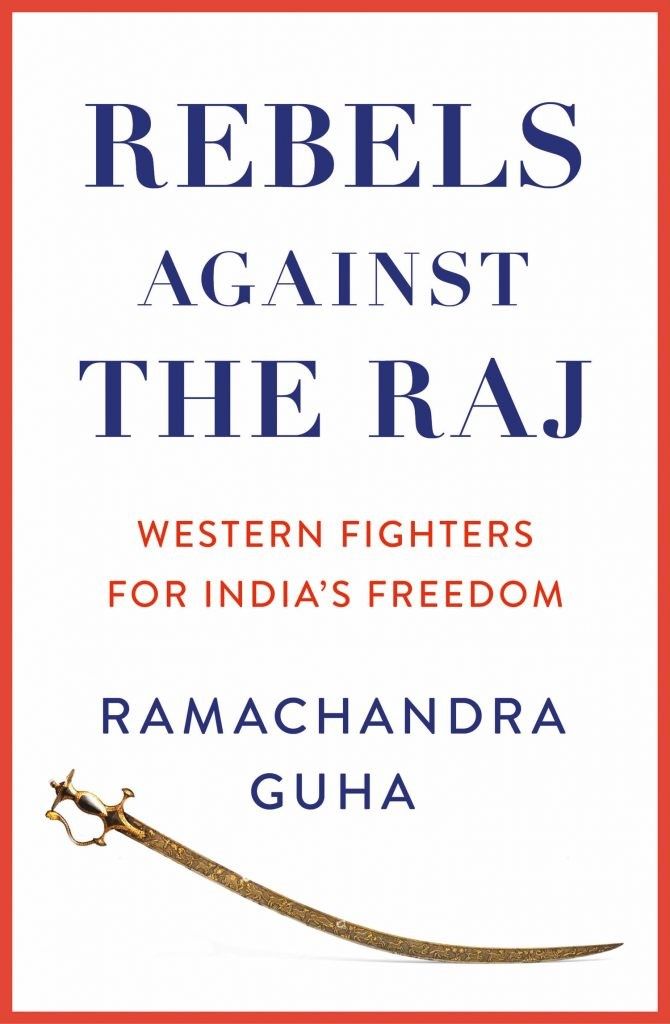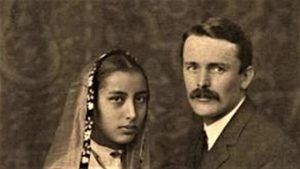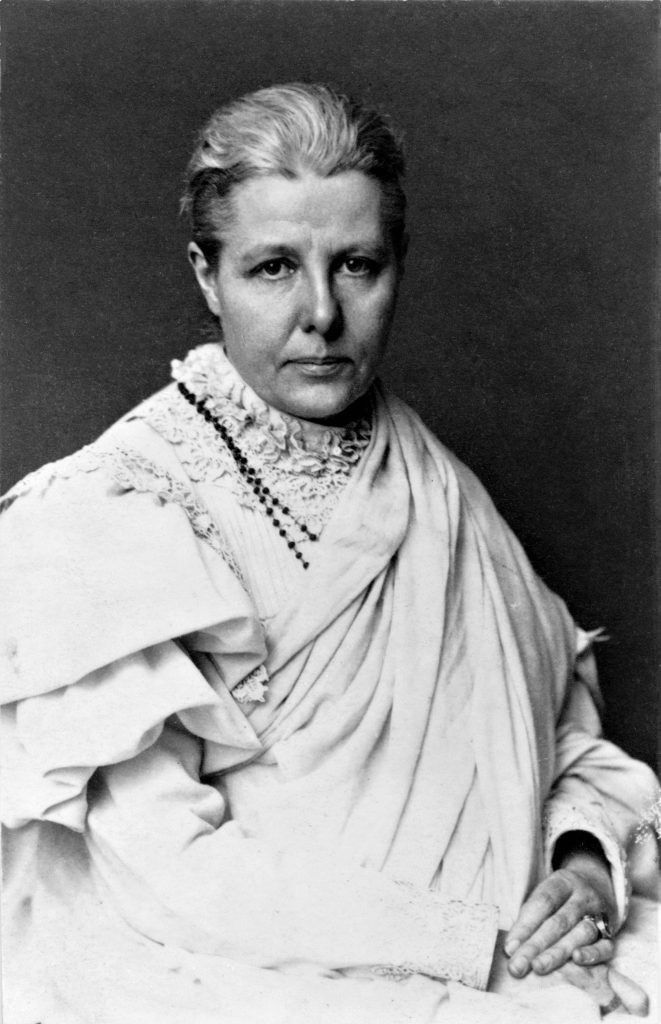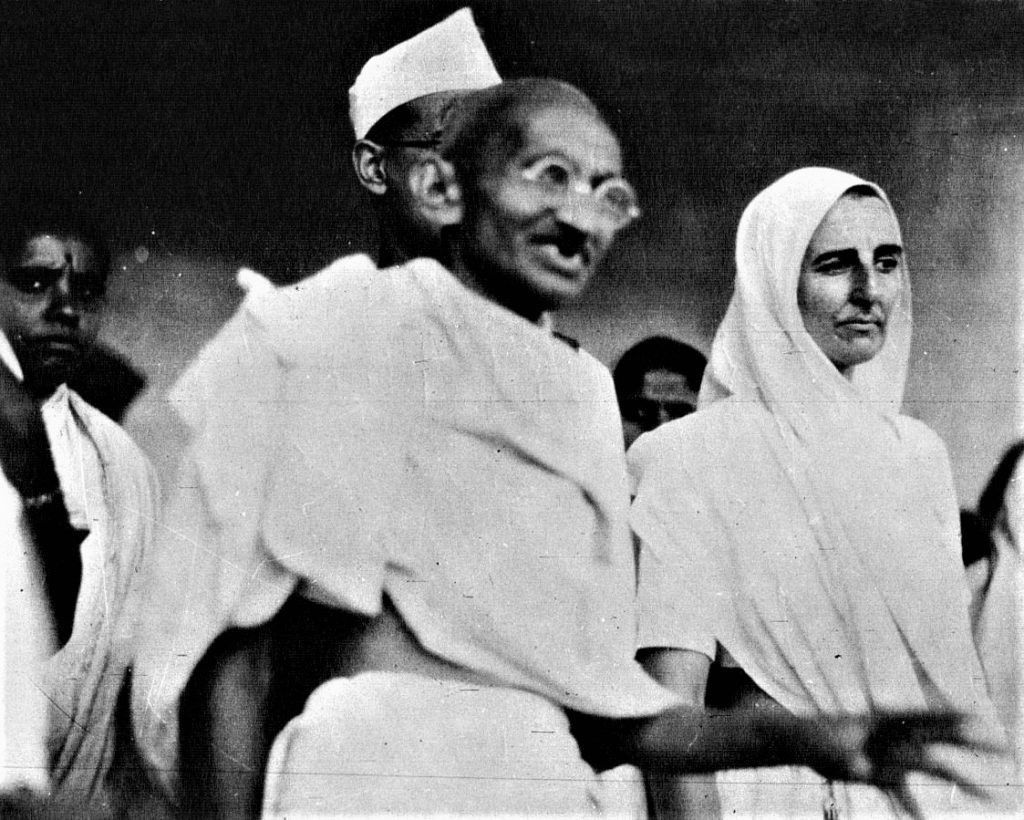THE debate on the rights and wrongs of empire need not be “toxic”, the Indian author Ramachandra Guha has said, after winning an important history prize.
Guha was last week awarded the Elizabeth Longford Prize for Historical Biography 2023 in its 20th anniversary year for Rebels against the Raj: Western Fighters for India’s Freedom (published by William Collins).
The book tells the unusual story of seven white foreigners – four men, three women – who were severely punished by the ruling British establishment of the day for supporting the struggle for Indian independence. Of the seven, four were British, two American, and one Irish.
At the recently held Jaipur Literary Festival at the British Library, a number of writers, including Sathnam Sanghera, author of Empireland, said the debate about the empire had become so “toxic” that even to ask questions about the dark side of the colonial rule in India, for example, was to invite racist abuse.
Speaking from his home in Bangalore (now Bengaluru), Guha said it was wiser to bring “nuance and subtlety and humanity to the whole discourse”.
He said: “On either side, the empire debate is so toxic because it’s black and white. On one side you have those who just see the British as bringing civilisation here (in India), and on the other side, you have those who see them inevitably as rapacious plunderers and exploiters.”
Guha said he had written his book “out of personal interest in an individual who had fascinated me for a long time. But as it turns out, it comes at a time when there is a debate about empire. I hope people will see that the debate is much more nuanced than it’s usually presented.”
That there was something redeeming about a number of British individuals was recognised by Indian freedom icons Mahatma Gandhi and Jawaharlal Nehru.
“The British were imperialistic and could be brutal. But there was also ambivalence. They had a certain elementary human conscience, which could be stirred and awakened, at least, among some of them. In that sense, my book is a tribute to the other side of the British.”
The prize which Guha won “was established in 2003 in affectionate memory of Elizabeth Longford (1906-2002), an acclaimed historical biographer and family matriarch best known for Victoria RI (1964), her scholarly and readable life of Queen Victoria, for her magisterial Wellington: Years of the Sword (1969), and Wellington: Pillar of State (1972)”.
Along with a cheque for £5,000, the winner also received a bound copy of Longford’s autobiography, The Pebbled Shore (1986) when he was in London last Monday (12). Guha’s book is now in with such previous big name winners as Fredrik Logevall’s JFK, Volume One; Ben Macintyre’s A Spy Among Friends: Kim Philby and the Great Betrayal; Charles Moore’s Margaret Thatcher: The Authorized Biography, Volume 1: Not For Turning; Frances Wilson’s How to Survive The Titanic; and David Gilmour’s The Long Recessional: The Imperial Life of Rudyard Kipling.

In this year’s shortlist of five, there was another book with an Indian theme – Guru to the World: The Life and Legacy of Vivekananda by Ruth Harris.
The judging panel, chaired by Roy Foster, Emeritus Professor of Irish History at Oxford, included Elizabeth Longford’s daughter and granddaughter, Antonia Fraser and Flora Fraser, respectively, and Rana Mitter, Professor of the History and Politics of Modern China at Oxford.
Foster said: “From an immensely strong field the judges have chosen a book where the author’s deep empathy and impressive scholarship are lit up by a passionate regard for his subjects.” Guha, Foster explained, had profiled seven people “who adopted India’s struggle for independence and in doing so found their own destinies. The experience of India changed their ideologies, their spirituality, and often their names.
“In tracing their relationships revolving around the magnetic figure of Gandhi, Guha adds a new perspective to the Mahatma’s life, on which he has already focused so rewardingly in his multi-volume biography.

“Alert to his subjects’ disappointments and occasional delusions, he salutes their commitment to a new way of life and their prescience about the needs of a post-colonial world and India’s place in it. Rebels Against the Raj shows how historical biography can illuminate the temper of the times through immersion in individual lives.
“As Guha points out, oppression does not disappear with the ending of colonial rule, and the ideas and priorities incisively drawn out in this book deserve urgent attention in today’s India.” Six of the seven people Guha profiled in his book died in India.
The author said Indians may have heard of “Annie Besant because of her theosophy and also because she was the first female president of Congress” and Mira Behn, an admiral’s daughter who had changed her name from Madeleine Slade and was played by Geraldine James in Richard Attenborough’s Oscar winning, Gandhi. But the book has other heroes – for example, Samuel Stokes, an American Quaker who changed his first name to Satyanand, took an Indian wife, Agnes, and more or less became a Hindu.
Then there was the campaigning journalist Benjamin Guy Horniman, who outraged the colonial masters by supporting Indian independence; Philip Spratt, a Cambridge graduate who helped establish the Communist Party of India; and Richard Ralph Keithahn, an American missionary who worked to educate and provide healthcare for villagers in south India.
British-born Catherine Mary Heilemann – renamed Sarala Behn – set up a girls’ school and was a pioneering environmentalist campaigner in north India.

When the book came out last summer, Guha told Eastern Eye: “The lives and doings of these individuals constitute a morality tale for the world we currently live in. This is a world governed by paranoia and nationalist xenophobia, with the rise of jingoism in country after country, and a corresponding contempt for ideas and individuals that emanate from outside the borders of one’s nation.
“No foreigner, they believe, can teach them anything. This book tells us that they can.
“The focus of this book is on individuals who decisively changed sides, identifying completely with India, meeting Indians on absolutely equal terms as friends and lovers, and as comrades on the street and in prison too.”
Guha revealed last week that he was inspired by the life of Verrier Elwin when he was an MA student at Delhi University. “He was a maverick British anthropologist who worked with Indian adivasis (tribal folk).

“Basically, he was an Oxford scholar who was a priest, came to India, met Gandhi, left the church, started working among adivasis in central India, became a leading expert on them, and Nehru sent him as an advisor to the north-east and he spent his last 10 years there.
“I was charmed by his work and his writing and decided economics is not for me and I did a PhD in sociology and moved to history because of Elwin. Elwin’s big regret was that unlike his exact (white) contemporaries, he was never arrested. He thought there was something lacking in his CV.
“The idea of this book (Rebels against the Raj) occurred while I was working on Elwin more than 25 years ago.
“Without Elwin I would not have written this book, without Elwin I would not have become a biographer, without Elwin I would not have done a PhD, I would have become a boxwallah. Like most Indians of my generation, I might have joined the IAS or something rather mundane. So, reading Elwin changed my life.”
